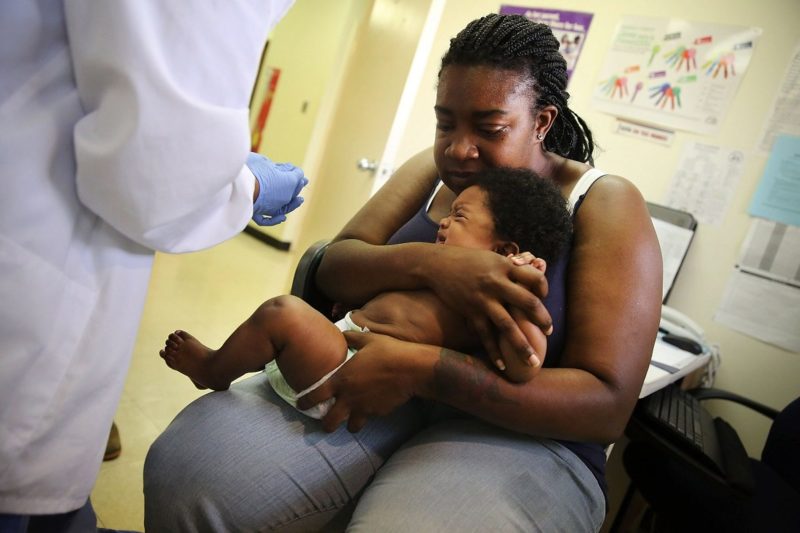White House’s ‘Religious Liberty’ Order Still Likely to Lead to Discrimination
The new executive order is likely to result in religious exemptions for those who hold conservative views about sex, marriage, and reproduction, hitting women of color hardest.

Unlike an earlier leaked draft, the executive order (EO) on religion signed by President Trump on Thursday does not single out for special protection the religious belief that “sexual relations are properly reserved” for marriage between cisgender, heterosexual partners. Nevertheless, the EO is likely to result in religious exemptions for those who hold conservative views about sex, marriage, and reproduction. While such exemptions harm LGBTQ communities, they also injure those who have had sex outside marriage, especially unmarried pregnant women and parents. Furthermore President Trump has also promised to sign the First Amendment Defense Act (FADA), which would more explicitly permit discrimination against unmarried families.
Section 4 of the EO states, “In order to guide all agencies in complying with relevant federal law, the attorney general shall, as appropriate, issue guidance interpreting religious liberty protections in federal law.” This would give Sessions an opportunity to review existing administrative guidances—including those protecting federal employees who are LGBTQ, pregnant, or religious minorities—to determine whether they are sufficiently deferential to religious objectors. Furthermore, Sessions could issue new guidance interpreting federal religious exemption laws like the Religious Freedom Restoration Act (RFRA). Sessions could use overly-broad interpretations of RFRA, which offer protections to religious objectors, to limit agency enforcement of federal laws.
Jeff Sessions has a long history of supporting conservative Christian views regarding sex and gender, and was a co-sponsor of FADA. It is likely that he will interpret RFRA to conform to his beliefs, and will prioritize religious adherents’ opposition to extramarital sex over anti-discrimination and labor laws like the Pregnancy Discrimination Act and the Family and Medical Leave Act.
Depending on how broadly Sessions interprets RFRA, the EO could obstruct the federal government’s ability to enforce a huge variety of health, benefit, and labor laws to protect unmarried pregnant and parenting women and their families. To give just a few examples: Health plans could restrict benefits for hospital stays following childbirth for unmarried women, deny coverage based on any preexisting conditions that are the “result” of non-marital sex (such as sexually transmitted infections or pregnancy), or deny coverage for preventive services—such as counseling for contraception or domestic violence screening—to employees who are unmarried. While such discrimination would otherwise subject a plan to tax penalties, it would be tolerated if Sessions instructs the Internal Revenue Service that enforcement of applicable law would violate RFRA. The EO may also protect employers from tax penalties they would normally incur if they denied health coverage to the dependent children of unmarried employees.
The EO could also allow religious organizations that receive government grants to discriminate against unmarried pregnant women and parents based on their religious beliefs, and require government agencies to accommodate employees that have religious opposition to extramarital sex.
While the broad adoption of such religious exemptions would have a devastating impact on all unmarried families, it would especially harm women of color, who already face disproportionate rates of pregnancy discrimination and other economic barriers. Forty percent of children are now born to parents who are not married, according to the national research organization Child Trends. The number is much higher for Black, Latinx, and Native American women, who in addition face higher rates of pregnancy discrimination while receiving lower wages than white women.
Trump’s religious exemption EO, and the risk of Congress and Trump enacting FADA, pose serious threats to the rights of LGBTQ families. However, the EO is likely to harm people who have had sex outside of marriage, including the large and growing number of unmarried families, many of whom are families of color.
